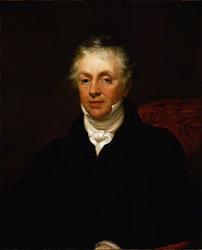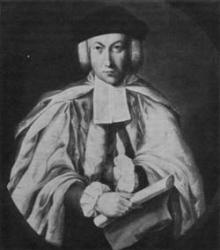Planning worship?
Check out our sister site, ZeteoSearch.org,
for 20+ additional resources related to your search.
- |
User Links
Person Results
E. J. Hopkins

1818 - 1901 Composer of "[O come, let us sing unto the Lord]" in The Methodist Hymn-Book with Tunes Dr Edward John Hopkins MusDoc United Kingdom 1818-1901. Born at Westminster, England, the son of a clarinetist with the Royal Opera House orchestra, he became an organist (as did two of his brothers) and a composer. In 1826 he became a chorister of the Chapel Royal and sang at the coronation of King William IV in Westminster Abbey. He also sang in the choir of St. Paul’s Cathedral, a double schedule requiring skill and dexterity. On Sunday evenings he would play the outgoing voluntary at St. Martin’s in-the-field. He left Chapel Royal in 1834 and started studying organ construction at two organ factories. He took an appointment at Mitcham Church as organist at age 16, winning an audition against other organists. Four years later he became organist at the Church of St. Peter, Islington. In 1841 he became organist at St. Luke’s, Berwick St., Soho. Two Years later he was organist at Temple Church, which had a historic organ (built in 1683). He held this position for 55 years. In 1845 he married Sarah Lovett, and they had four sons and five daughters. He was closely associated with the Bach Society and was organist for the first English performances of Bach’s St. Matthew Passion. In 1855 he collaborated with Edward Rimbault publishing “The organ, its history and construction” (3 editions 1855-70-77). In 1864 he was one of the founders of the “College of organists”. In 1882 he received an honorary Doctorate of Music from the Archbishop of Canterbury. He composed 30+ hymn tunes and some psalm chants, used by the Church of England. He died in London, England.
John Perry
E. J. Hopkins
Samuel Wesley

1766 - 1837 Person Name: Samuel Wesley, 1766-1834 Composer of "VENITE, EXULTEMUS DOMINO" in Methodist Hymn and Tune Book Samuel Wesley; b. Feb. 24, 1766, Bristol; d. Oct. 11, 1837, London; composer and organist. Son of Charles Wesley, grandson of Samuel Wesley, 1662-1735
Samuel Wesley
Anonymous
Person Name: Anon. Composer of "[O come let us sing unto the Lord]" in The Morning Hour In some hymnals, the editors noted that a hymn's author is unknown to them, and so this artificial "person" entry is used to reflect that fact. Obviously, the hymns attributed to "Author Unknown" "Unknown" or "Anonymous" could have been written by many people over a span of many centuries.
Anonymous
John Goss

1800 - 1880 Person Name: J. Goss, 1800 - 1880 Composer of "[VENITE] GOSS" in The Hymnary of the United Church of Canada John Goss (b. Fareham, Hampshire, England, 1800; d. London, England, 1880). As a boy Goss was a chorister at the Chapel Royal and later sang in the opera chorus of the Covent Garden Theater. He was a professor of music at the Royal Academy of Music (1827-1874) and organist of St. Paul Cathedral, London (1838-1872); in both positions he exerted significant influence on the reform of British cathedral music. Goss published Parochial Psalmody (1826) and Chants, Ancient and Modern (1841); he edited William Mercer's Church Psalter and Hymn Book (1854). With James Turle he published a two-volume collection of anthems and Anglican service music (1854).
Bert Polman
John Goss
Thomas Attwood

1765 - 1838 Person Name: T. Attwood Composer of "[O come, let us sing unto the Lord: let us heartily rejoice in the strength of our salvation]" in University Hymns Thomas Attwood, born 1767; organist and composer; wrote many operas and other works; died March 24, 1838.
A Dictionary of Musical Information by John W. Moore, Boston: Oliver, Ditson & Company, 1876
Thomas Attwood
Stephen Elvey
1805 - 1860 Person Name: Stephen Elvey, 1805-1860 Composer of "[Come, let us sing to the Lord]" in The Hymnal 1982
Stephen Elvey
John Alcock

1715 - 1806 Person Name: Dr. J. Alcock, 1718-1806 Composer of "[O come let us sing unto the Lord]" in The Book of Common Praise John Alcock, doctor of music, was born in London, April 11, 1715; he composed songs, church music, glees, anthems, instrumental music, chantes, etc., and obtained the prize at the Catch Club; died at Lichfield, 1806, aged 91.
A Dictionary of Musical Information by John W. Moore, Boston: Oliver, Ditson & Company, 1876
John Alcock
Joseph Barnby

1838 - 1896 Composer of "[O come let us sing unto the Lord]" in The Methodist Hymnal Joseph Barnby (b. York, England, 1838; d. London, England, 1896) An accomplished and popular choral director in England, Barby showed his musical genius early: he was an organist and choirmaster at the age of twelve. He became organist at St. Andrews, Wells Street, London, where he developed an outstanding choral program (at times nicknamed "the Sunday Opera"). Barnby introduced annual performances of J. S. Bach's St. John Passion in St. Anne's, Soho, and directed the first performance in an English church of the St. Matthew Passion. He was also active in regional music festivals, conducted the Royal Choral Society, and composed and edited music (mainly for Novello and Company). In 1892 he was knighted by Queen Victoria. His compositions include many anthems and service music for the Anglican liturgy, as well as 246 hymn tunes (published posthumously in 1897). He edited four hymnals, including The Hymnary (1872) and The Congregational Sunday School Hymnal (1891), and coedited The Cathedral Psalter (1873).
Bert Polman
Joseph Barnby
George J. Elvey

1816 - 1893 Person Name: G. J. Elvey Composer of "[O come let us sing unto the Lord] (Elvey)" in The Church Hymnal George Job Elvey (b. Canterbury, England, 1816; d. Windlesham, Surrey, England, 1893) As a young boy, Elvey was a chorister in Canterbury Cathedral. Living and studying with his brother Stephen, he was educated at Oxford and at the Royal Academy of Music. At age nineteen Elvey became organist and master of the boys' choir at St. George Chapel, Windsor, where he remained until his retirement in 1882. He was frequently called upon to provide music for royal ceremonies such as Princess Louise's wedding in 1871 (after which he was knighted). Elvey also composed hymn tunes, anthems, oratorios, and service music.
Bert Polman
George J. Elvey


 My Starred Hymns
My Starred Hymns


